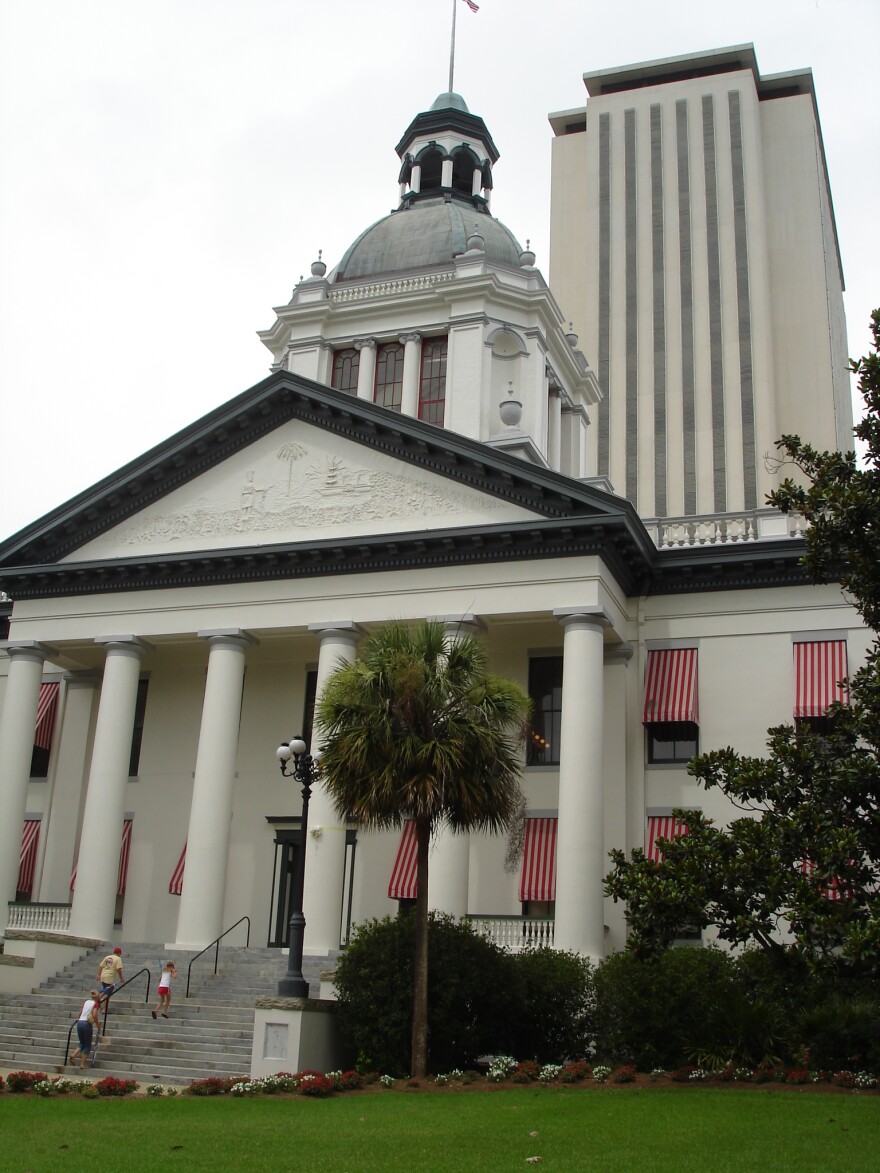A bill seeking to protect the freedom of religious expression in public schools cleared Florida Senate on Thursday in a vote that largely cleaved along party lines.
The bill, aiming to create the “Florida Student and School Personnel Religious Liberties Act,” passed by 23-13 vote on the floor. It intends to unify existing religious rights in a single legislation that would be simple to implement and heed.
Introduced by Sen. Dennis Baxley, R-Ocala, the bill prohibits “a school district from discriminating against students, parents, or school personnel on the basis of religious viewpoints or expression."
It also permits student-led religious groups and initiatives — such as prayer during the school day — on school premises and allows staff to partake in them as long as doing so does not encroach on their official duties.
The bill has a companion in the House of Representatives. Many of the rights the two bills aim to buttress are already safeguarded under federal and state law.
There is the First Amendment, which guarantees freedom of religious expression; Title VII of the Civil Rights Act of 1964, which prohibits religiously motivated discrimination against employees; the 1984’s Equal Access Act, which authorizes the formation of faith-based extracurricular clubs; the U.S. Department of Education’s guidance on constitutionally protected prayer in schools; and a state law Gov. Rick Scott signed in 2012 to recognize prayer in schools.
“What this does is take all the case law that has happened and kind of fit it to the ground in a format that is workable and uniform so we do not have varying interpretations of what is appropriate,” said Baxley in a committee discussion.
Opponents consider the measure undue. Sen. Gary Farmer, D-Fort Lauderdale, is one of them.
“The right to religious belief is not being taken away if we don't pass this bill,” he said.
Nonetheless, the pending legislation may interfere with secular education, said Jonathan Smith, president of Florida Citizens for Science.
“It is just smoke and mirrors to have religion an alternative to science, taught in the science classroom,” Smith said. “And if this goes through, it is going to be devastating for good science education.”
Florida’s standards for science — guidelines for teaching the subject — were last updated in 2008. As the field constantly evolves, Smith said, students in Florida are stuck with outdated material.
As of next academic year, if the bills turn into law, the issue may worsen, as scientific facts would collude with contradicting religious beliefs, Smith said.
“So, you go into a science classroom and the teacher says, ‘Ok, we have the value of pi. It is 3.14159,’ ” he said. “And the student says, ‘Well, I do not agree with that because my religious book says it is exactly three.’ So, where does that leave us?”
Another probable recourse to resolve the possible collision of religion and science in schools is through enhanced educational standards, said Andrea Messina, executive director of Florida School Board Association that works with 64 school boards.
“Typically when issues like that are in conflict what happens ... is at that point the State Board of Education or the state Department of Education would create standards and the standards will tell you what you are supposed to teach with regards to climate change or whatever,” Messina said. “But besides that, many times, teachers teach one scientific position and then they would say, ‘But some other scientists believe two, three or four.’ ”
Steve Lyons, who heads the science department at Ponte Vedra High School, acknowledged some teachers fail to properly delineate and reconcile science and religion when confronted by students, but he does not think the bills would degrade science education.
“I would not be threatened at all by somebody bringing into my science class a religious belief about the shape of the earth or whatever,” he said. “I would then use that as a springboard to describe what science is as compared to what religion is in a non-threatening way.”
Currently, Florida’s Department of Education does not have standards for teaching religion, the same way it has for math and languages.
The bills would enable students to practice all faiths — including satanism and any self-created creeds — in schools before, during and after class hours. But Smith of Florida Citizens for Science is cautious about the intentions of the bills’ sponsors.
“They want religion back in school and it is not any religion,” he said. “It is their particular religion. They want Christianity — the foremost religion — taught and used and acted upon in the school system.”
Baxley served as executive director of the Christian Coalition of Florida, while Rep. Kimberly Daniels’, D-Jacksonville, who brought up the House bill, is a pastor, religious author and, according to her website, founder of Spoken Word Ministries, Kimberly Daniels Ministries and World Bible College.
While largely identical, the Senate and House bills diverge when it comes to what is called a “limited public forum” or ceremonies and activities where students can address their peers.
The Senate version calls for letting student speakers voluntarily focus on religious themes within such events, but the House bill had the requirement struck out. Thus, if the House passes the latter in its current form, a legislature-wide agreement will be needed to integrate the bills.
Dima Vitanova is a contributor to WJCT. She can be reached at dima93vitanova@gmail.com

